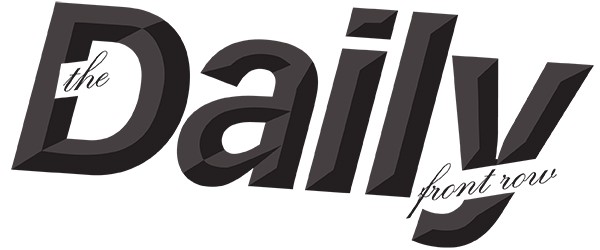Blake Lively covers Glamour’s September issue—looking glam in a Saint Laurent by Anthony Vaccarello dress—in time with her upcoming role in All I See Is You (out September 15). In a deeper-than-usual interview, she discusses acting, the election, and raising her daughters, which is not a shocker after famously shutting down a reporter for asking what she was wearing, a standard red carpet query, to Variety’s Power of Women event this year. Check out highlights from the interview below, and scoop up the issue when it comes out on August 8.
On women achieving parity in Hollywood by producing their own projects…
“I think it helps a lot. Nobody’s going to fight for you as much as you fight for yourself. That said, I know a lot of great men—directors, producers, studio heads—looking to tell stories about women, some because they’re drawn to those stories, some because they’re husbands or fathers and want to see the women in their life represented more accurately, and some just because they look at the numbers. They see, ‘Wonder Woman has replaced religion in America. We should probably invest in female summer movies.’”
On playing complicated women…
“I think that onscreen—at least in the mainstream—complicated women are black-and-white. They’re villains, or they’re heroic. And that’s just not real life…. We all have a lightness, and we all have darkness, and we all have plenty of shades in between.”
On how the election has changed her…
“It made me more aware, more conscious, more sensitive. Not just of sexism but of discrimination in all areas—class, gender, race. I had realized that there were problems [before]. You know, I do a lot of work against sex trafficking: There are hundreds of thousands of missing-children reports in the United States each year; some of those children are sex-trafficked. But that’s not reported. You see [stories about] only the wealthy, middle-class white girls who’ve been kidnapped. There are people missing all the time, and because they’re minorities, because they come from impoverished neighborhoods, they don’t make the news. That is so devastating.”
On her husband, Ryan Reynolds, becoming more conscious of the language they use around their daughters…
“But with my husband, I’m lucky to have someone who is so conscious. My husband was like, ‘Why do I always say he?’ And I said, ‘That’s what we’re taught.’ So he’ll pick up, like a caterpillar, and instead of saying, ‘What’s his name?’ he’ll say, ‘What’s her name?’ Or we’ve joked that my daughter is bossy. But my husband said, ‘I don’t ever want to use that word again. You’ve never heard a man called bossy.’ …. There would never be any negative connotation for a man being a boss, so to add a negative connotation on a woman being bossy? It’s belittling. And it doesn’t encourage them to be a boss. So do I know how to be the best parent for a daughter? No, I have no idea. All I can do is share what I’m thinking—and learn from others.”
On people thinking her life is perfect…
It’s nonsense. It simplifies people. Not all men, but a subsection of men have a desire to understand and control women. To do that, you have to paint them into this thing you can wrap your head around. But women are complex. It also is [a reminder] that what you see in the media is not real life. The night before an interview, I have complete anxiety: How is this person going to spin me? So when you read, ‘Oh, she’s got a perfect life,’ or ‘Her life is crumbling’—they pick narratives for everyone. And the narratives stick.”
On Reynolds’ tweets about their family…
“[Laughs.] He may as well work for the Enquirer. When he says ‘my daughter,’ he’s never, ever talking about her. Everything is a completely made-up scenario. He’ll run them by me sometimes just to make me laugh. But oh, I’m so in love with him when he writes that stuff. I mean, I’m in love with him most of the time, but especially with that.”
On saying she loves her husband “most of the time”…
“I said, ‘Most of the time,’ because if I say, ‘I’m so in love with him all the time,’ then you get that eye-rolling, ‘Oh, her life is so great, she’s so perfect.’ So it’s, like, my defense mechanism.”
On whether she imagined she would still be friends with America Ferrera, Amber Tamblyn, and Alexis Bledel…
“Yes, and I’m grateful we are still friends. They’re three of my very best friends and role models. They’re so artistic, and they’re activists. They’re wives, and most of us are mothers. They’re producers, directors, and writers. They’re not limited. They’re unlimited.”



